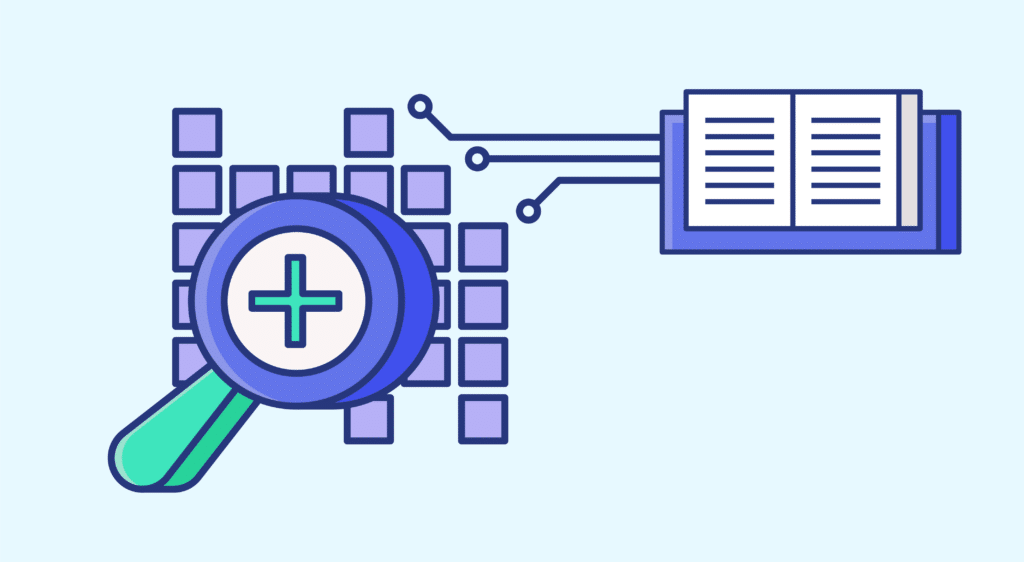Big Data refers to resources whose characteristics in terms of volume, velocity and variety require the use of specific technology and analytical methods to generate value. Find out everything there is to know about Big Data.
The proliferation of data, due to the increasing digitisation of the economy and players in all markets, has forced researchers to find new methods for collecting and processing it, at the level of a company, a country or even the world.
What is Big Data?
Big data, literally “massive data”, refers to data sets that have become so voluminous that they exceed human capacity for analysis and call into question the use of traditional IT tools. This data may be personal, professional or institutional in nature, and may come from different sources of information circulating on digital networks (text, video, audio, databases, etc.).
For some, the emergence of Big Data is presented as a new industrial revolution similar to the discovery of the steam engine (early 19th century), electricity (late 19th century), and computing (late 20th century). For others, this phenomenon is seen as the final stage of the third industrial revolution, which is in fact the “information” revolution. Whatever the case, Big Data is recognised as a source of profound upheaval for society.
Big Data - What does this mean in practical terms?
The first thing to understand is that Big Data is naturally linked to digital technology. The latter encompasses IT, but its scope is broader, since it also covers telecommunications (telephone, radio, television, computer) and the Internet. Every action carried out in the digital world produces one or more potentially analysable data items.
Since we can use digital technology in a variety of ways, the format of the data produced is highly varied. This volume of data generated, combined with its variety and speed of production, constitutes the structure of “big data”.
So it is not enough to consider only the data to claim that we are dealing with big data. Issued separately, data is just data. But once it has been collected, sorted and processed, it becomes usable information.
The power of Big Data therefore lies in converting your seemingly insignificant data into the main keys to your new decision-making. In other words, it’s a new kind of strategic intelligence that can speed up the decision-making and performance of your business.
Understanding Big Data with the 5Vs
- V for Volume: big data means an exceptional volume of data,
- V for Velocity: big data means fast, real-time data processing,
- V for Variety: big data is data in a variety of forms. An image, a video, a tweet, a like are all data. A simple trace left on a website following your visit – the famous cookies – or by one of your connected objects is data.
- V for Veracity: big data raises the issue of the veracity of data. Is it relevant? Does it reflect reality?
- V for Value: one of the disadvantages of big data is the problem of considering the value of the data produced. Sorting the data is essential. It is therefore vital to select the right data for analysis, depending on your business and, above all, your objectives.
What is Big Data used for?
Big data is used in all areas related to digital technology. It benefits all sectors of activity as they undergo their own digital transformation.
In the case of an e-commerce site, the use of big data can lead you to understand that “those who bought product X also bought product Y”. This type of analysis is made possible thanks to big data and the exploration of thousands, if not millions, of customer purchase data for the e-commerce site in question.
Finally, big data is a solution that gives everyone access, in real time, to a colossal amount of data in order to process it, analyse it and derive concrete decision-making interpretations from it.
Learn about Data Science to exploit Big Data
Although Big Data harnesses the power of artificial intelligence, human intelligence and analytical skills remain essential. Big data is evolving as more and more companies see the benefits. However, human resources research clearly reveals a shortage of Big Data experts. That’s why big data is home to countless job and career opportunities. Data science courses are proliferating to train you for the jobs that have emerged with the emergence of big data, such as data analyst and data scientist. These are the jobs of the future, and they are constantly evolving. So, if you see data science as a niche of opportunity and professional fulfilment, train for big data!










